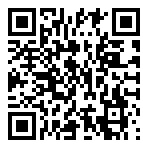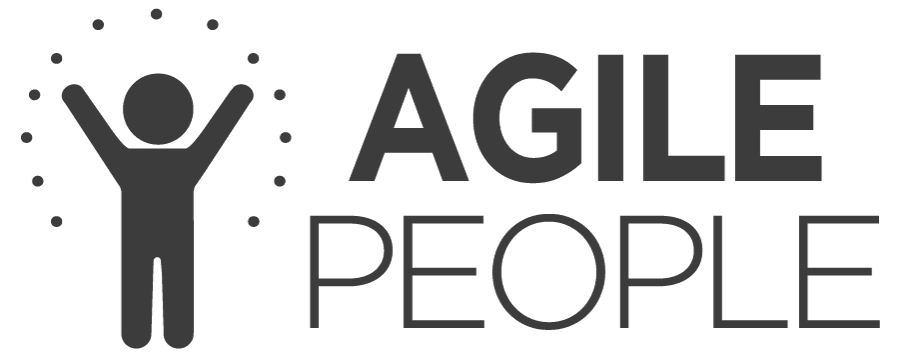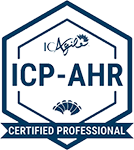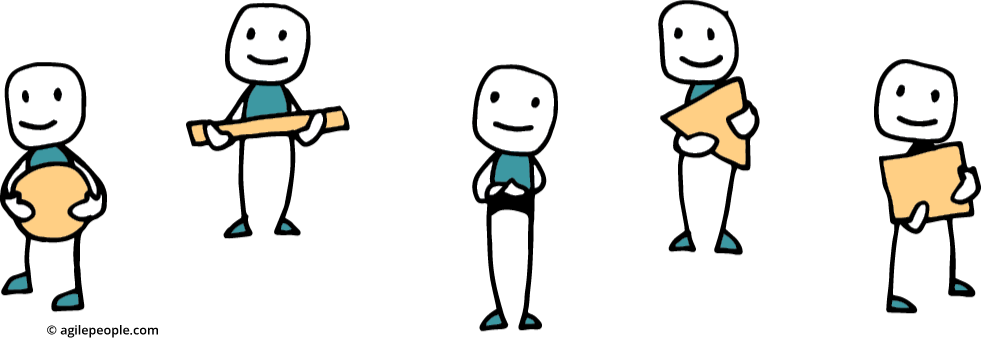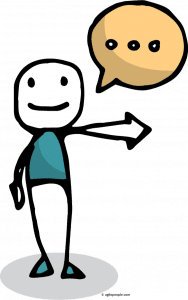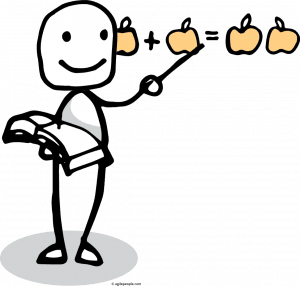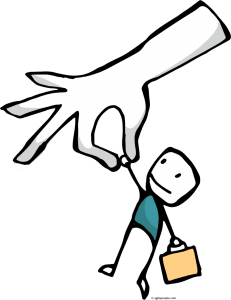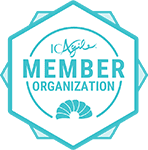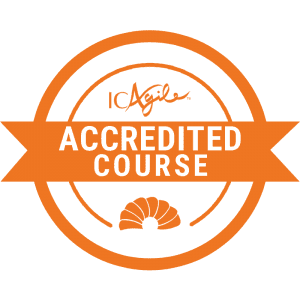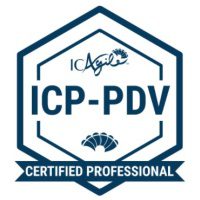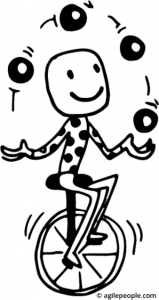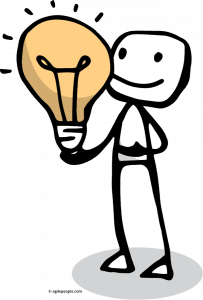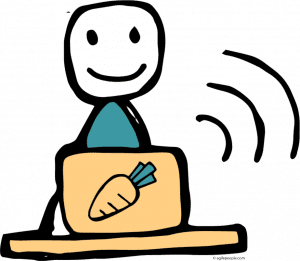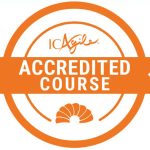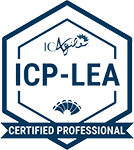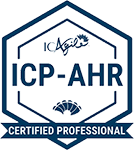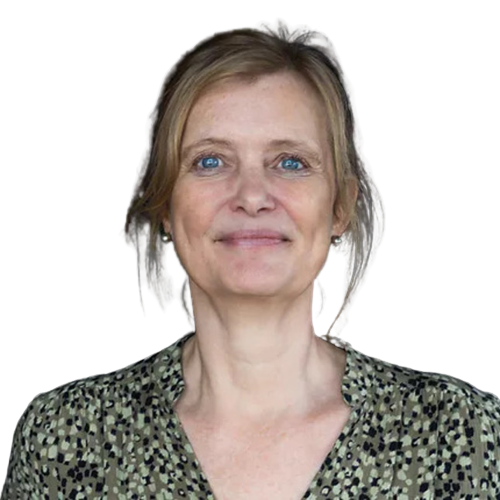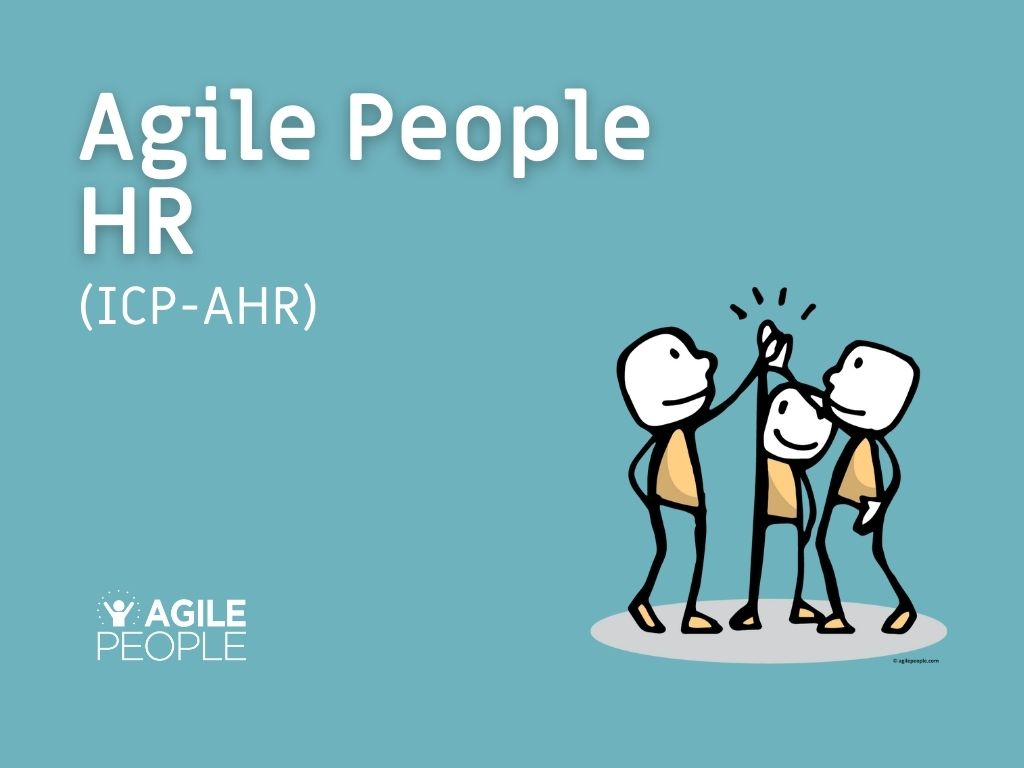
[SLO] Agile People Fundamentals + HR (ICP-AHR)
Agility in HR
In this fast changing world, following agile principles enables organizations to more quickly innovate and meet rapidly changing customer needs.
Since people are an integral part of the journey towards business agility, more and more organizations are seeing the value in applying the agile mindset also in HR and people development and how critical that role is for the journey’s success.
About
Today the most progressive companies have changed the HR role to a more coaching role serving all the people, not just management. Although this changed view of the formal HR role is still not fully mainstream today, many organizations are experimenting with alternative structures, ways of working and people practices that allow a truly Agile culture to thrive.
You will leave this experience having gained both knowledge and practical skills to bring forward new ways of working and being that place HR in a leading position to create lasting change, engagement, and a truly empowered workplace.
Program Content
Introduction to Agile People and important principles/tools
The foundation of Agile People’s’ mindset is about the principles, values, methods, and tools that we need to start using to release competence and innovation – and what we stop doing. We discuss your challenges and certification assignment.
Psychological safety as a foundation for a learning organization
The importance of an approach that is permeated by security and confidence to increase profitability and innovation – to increase creativity through a culture where it is ok to fail and try again. We play “The Psychological Safety Game” to facilitate dialogue about difficult topics
Emerging strategies, structures, and goals
Emerging strategies instead of long-term planning, new ways of working with strategy, budgets, goals, performance processes, and rewards. Using value stream mapping to optimize flows in a system instead of working with resource optimization and sub-optimization of departments.
Building conditions for agile culture
Creating conditions for a fantastic culture where people can perform at their optimal level with a sense of being supported and secure. The gap between structures and culture/values. Structure – Culture Misfit Play.
The learning Organisation as Strategy and the future role of HR and managers
Boundary Spanning and the Buddy System to increase cross-border collaboration and increase the opportunity to create a fantastic organization together. Tips and examples for the change journey and how HR and managers need to change their role to support it.
How HR’s role is changing when we need to increase Business Agility
Design the talent/people elements needed to help support an Agile transition in an organization and explain how different contexts can influence the approach to be taken. Job titles, competency profiles, titles, career, succession – how do we do it in an agile organization? Examples and cases.
How HR can use tools and practices from Agile
Using Scrum, Kanban, Value Stream Mapping, and OKRs for HR is not so different from using it for Software development. What are examples, and how can you design talent/people processes using the agile ways of working? User stories for HR – what do they look like? Examples and cases of Agile HR in reality.
Performance management and examples & cases
Appraise current performance management practices and identify ways of bringing Agile thinking to enhance performance, accountability, and growth.
Compensation and Benefits
Examples and Cases. Describe and contrast traditional incentive structures with Agile-friendly structures, discuss the pros and cons of each approach, and explain how you could apply them to your environment.
Talent Acquisition and onboarding
Design a sourcing strategy that can be used to find and acquire the “right” people to support the strategic growth of the organization taking values, culture, diversity, and collaboration into the hiring decision. Design an onboarding experience that enables new employees to become a part of the organization rapidly and smoothly.
Employee Engagement
Recommend different motivational tools to be applied in a context and describe how the traditional employee engagement survey is changing.
Learning and Development
Suggest ways to enable and support a learning mindset in a team, supporting the shift from a focus on deficiencies to a focus on the development of new skills and capabilities.
Please read the details of the Agile People – Development course by clicking this row.
Audience
The audience for this training includes HR Professionals, Change Agents, People Managers, Agile Coaches, Scrum Master, Agile Project Managers, and people working in companies who require transformation to Agile ways of working. Their current responsibilities may include aspects such as people development, recruitment, performance management, compensation, and employee engagement/motivation.
What’s in it for you?
In the training we will work with many practical tools, templates and exercises that you can directly apply to your own projects or bring back to your team to start on your journey right after the training.
Every moment in our workshop – from exercises to games to discussions to coffee breaks is an opportunity to share, learn and network – and many participants say that the diverse groups we have in these trainings lead to great cross-functional, beneficial discussions.
You will also receive a free copy of the book: “Agile People – A Radical Approach for HR & Managers (That Leads to Motivated Employees)” by Pia-Maria Thorén.
Special Bonus: 16 week access to Agile People (Agility in HR) e-learning system with additional videos, readings, e-books.
Special additional Bonus: Each Participant will receive personal Reiss Motivation Profile, that we will use during the certification training.
ICAgile Certified Professional
This training is certified by International Consortium for Agile (ICAgile), a certification and accreditation body.
Upon completion of the course and submission and approval of your course assignment, you will receive (knowledge) certification in ICP-Agility in HR.
Learn more about ICAgile ( https://www.icagile.com/ )
Course leader
Maja Majstorović Hajduković
Trainer
-
Maja Majstorovic Hajdukovic
Maja Majstorović Hajduković
My passion is helping leaders and HR to change the way how we work and adapt best fit for the modern workforce. I help leaders and HR professionals win with change – empowering value creation in digital times with strong teams, focused leadership, and agile HR.
Having spent a majority of my career leading HR initiatives in dynamic business environments that helped organisations change, transform and expand, I deeply understand the HR needs of growing companies. I combine my extensive background in human resources and organisational development, with innovative agile HR practices, to offer a truly unique and transformative approach. The more I witness the energy Agile HR ignites, the more convinced I become of its restorative power, not just for the HR profession but for the future of work.
The role of HR is under tremendous change, from focusing mainly on policies and processes to understanding that the future for HR lies in creating conditions for people to perform and be happy. By removing impediments, we can instead maximize engagement and employee satisfaction that will fuel speed and adaptability in a common, strategic direction. HR can support the change towards a more agile organization – here we have the opportunity to really make a difference.
My favourite quote: “Reinvent yourself. Reinvent your company. Reinvent your world.”
I believe that personal reinvention/development is needed in order to change and grow. All that starts within ourselves, with self reflection. I have taken this path to find balance in my life and I walk the talk daily by being open minded, listen what others have to say, being a great role model to my children, enjoying tasting new food and trying out new restaurants. If you consciously decide to look within yourself and make changes in your thinking, acting and behavior you can come a long way.
Learn a new thing every day. Start small and keep it simple. Go AgilePeople!
